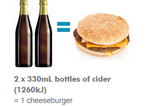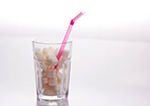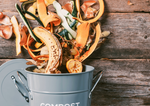Five things your dietitian wants you to know about weight loss
by Anne Finch, Accredited Practising Dietitian for LiveLighter
- July 1, 2016
- Leave a comment
- Health professionals
- Healthy eating
- Top Tips
- Mythbusting
- Goal Setting
- Weight Management
- Junk Food
- Psychology
- Smart Swaps
- Nutrition Facts
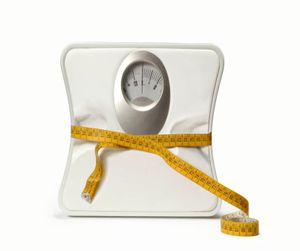
There’s so much information about weight loss out there these days, and it can be confusing. Here are my Big Five to be aware of if you’re embarking on a weight loss mission:
The Biggest Loser is not real life
The contestants have taken time out from work, family and fun to lose weight. They have the experts, time and resources to be doing this full-time. It’s definitely not something to try at home.
It isn’t reasonable or desirable to expect to lose 5+ kilos in a week. The fastest we can use up fat stores is more in the 0.5 to two kilograms per week range. While half a kilo doesn’t sound like much, it’s pretty significant! Think of a 500 gram pat of butter. That is what losing half a kilo looks like.
Losing more weight than that can send your body into starvation mode, which makes it harder to lose weight. It’s also likely that it’s muscle, and the water that plumps up muscles that’s being lost. Muscles are your friend. They take more energy to maintain than the equivalent amount of fat. So a musclier person, sitting on the couch watching TV, is burning more kilojoules than a fattier person of the same weight. That’s what you want.
2. Calories ain’t calories (except they kinda are)
If you want to lose weight, you just need to eat less energy (measured in Calories or kilojoules) than you burn, right? Well, yes. But it’s only that simple if you are a robot. Foods are complicated and have different properties, and these properties affect our appetites, and therefore how much we end up eating. So while the number of kilojoules you eat is what’s ultimately important, it can’t really be separated from the kind of kilojoules.
For example, two eggs and a handful of lollies both contain about 600 kilojoules. Having two eggs before dinner will probably decrease the amount of food you eat at your meal, while the lollies probably won’t (not to mention the other beneficial nutrients in eggs compared to lollies). Here are some more, it’s obvious which is the better option:
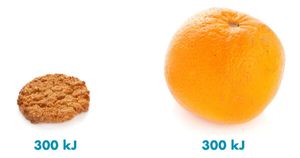
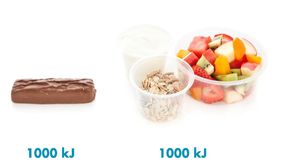
To make this even more complicated, the foods you find satisfying differ from person to person, day to day and meal to meal. This is why there’s no one ‘right’ diet for weight loss. You have to figure out what works for you, and be a bit flexible.
3. Move and maintain
For initial weight loss, what you eat is generally more important than how much exercise you do. (It would take me two hours of running to burn off a medium Big Mac Meal. Not going to happen.) But in the long term, people who exercise regularly are healthier, and more likely to maintain their weight loss.
Put simply, exercise is really, really good for you. If it was a pill we’d all be taking it. You don’t have to pound the treadmill if that’s not your thing. Go rock climbing, take a stroll, do squats between hanging out the laundry, walk or cycle part of the way to work. Plan it into your day, spend money on it, commit with a friend. Whatever works for you, just do it!
4. Weigh it up
If your goal is to lose weight, then it makes sense that you’ll want to step on the scales to see if you’re doing it. Studies have shown that having regular weigh-ins is a characteristic of people who have lost weight and kept-it off, long term.
But be aware that this isn’t right for everyone. It can be easy to get fixated on a single number which isn’t necessarily representative of how you’re doing. Eating better and getting more exercise has benefits regardless of whether or not you’re losing weight. Setting other health, food and fitness goals, along with a weight loss goal (if that’s your thing) is a good idea.
If weighing works for you, stick to these guidelines:
- Weigh yourself a maximum of once a week. There’s normal day-to-day variation in your weight and seeing all these small fluctuations can be confusing and unhelpful.
- Be consistent. Use the same scales, at the same time of day. First thing in the morning, after a wee and in the nude is ideal.
- Put the scales away when you’re not using them to avoid temptation. Set a reminder in your calendar and forget about it the rest of the time.
5. Sustainable changes are key
Do you want to be on a diet for the rest of your life? No?
Then you need to think about some changes that you are happy to commit to, forever. Find healthy food that you like, and ways to move your body that you look forward to. Figure out what habits are getting in the way of what you want to achieve, and work on changing them, bit by bit. Move away from the ‘always’ and ‘never’ mindset.
Weight loss is slow, complicated and different for everyone. Find the tools that work for you, and use them. Remember to be flexible and to be kind to yourself. You only get one body!


